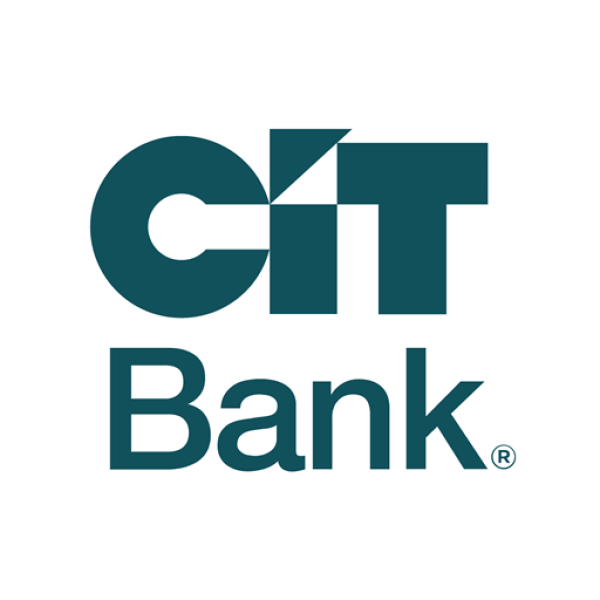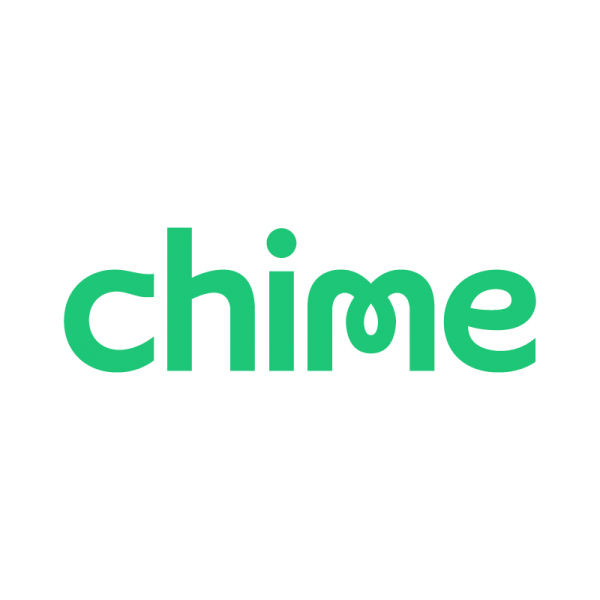CIT Money Market Account
Money market accounts are interest-bearing accounts held at banks or credit unions. (MMA). Money market accounts, commonly referred to as money market deposit accounts (MMDA), have several characteristics that are not available with other types of accounts.
The convenience of an ATM card and checks are combined with the savings benefit of a higher interest rate.
However, there are some drawbacks. The opening balance requirements for money market accounts are often greater, and you are still only allowed six transactions each month.
When compared to the national average yield of 0.05%, the CIT Bank Money Market account's remarkable annual percentage yield (APY) of 1.55% is impressive. It's a straightforward saving account with no ongoing fees and a small minimum opening balance.
securely on the bank's website
According to CIT Bank, opening an account takes five to ten minutes. Go online and do the following:
- Choose Start now.
- Click Open an account in the top right-hand corner of the CIT Bank website.
You will be prompted to indicate whether you are a returning applicant or an existing customer.
- Click I'm a new customer if you're a beginner.
- Click Next.
- Choose between a Joint and an Individual account.
- Enter your name, address, Social Security Number, birthdate, citizenship status, and mother's maiden name.
- Continue doing so to finance your deposit.
Checking account details
How Valuable Are Money Market Accounts?
When it comes to having access to your money, money market accounts offer more flexibility than savings accounts. It can also be a fantastic low-risk, short-term savings vehicle to park your money if it pays a high-interest rate.
However, you should also be aware of its limits, such as monthly withdrawal caps and the possibility of finding better return rates elsewhere.
Which Money Market Accounts Should I Compare?
Although a money market account's majority of features are similar to those of a regular savings account, you should consider the following:
Rate of interest. No matter how much money is in your account, some accounts give the same rate, while others scale interest rates according to ranges. The greatest interest rates typically apply to accounts of $100,000 or more, though bank structures differ.
Funding availability. You could be able to access your money through ATMs, debit cards, online and mobile banking, checks, and branches, depending on the account you choose.
Minimum required balance. The highest interest rate on money market accounts often comes with a minimum balance requirement. This sum could be in the hundreds to thousands of dollars range. A typical minimum deposit is also needed to create a money market account.
Trading online. Consider opening an account connected to an online trading account if you intend to engage in online trading. You may easily handle your stock trading demands with the help of a seamless connection.
Fees. Usually, there are no continuing maintenance or management fees associated with these accounts. However, you have the option of paying a transaction fee immediately or after a set amount of cost-free transactions each month. You can also be charged if you require checks or in-person assistance. Transactions over the phone and online are typically free.
How Do Money Market Accounts Stack Up Against Checking and Savings Accounts?
A quick comparison of money market accounts to savings and checking accounts is given below:
|
Account |
Best for |
Earns interest |
Check writing privileges |
ATM access |
Minimum deposit |
Monthly fee |
Six transaction limit |
Federally insured |
|
Money market |
Easy access to savings |
Yes |
Yes |
Yes |
$2,500 to $10,000 |
Yes |
Yes |
Yes |
|
Savings |
Storing money for a later use |
Yes |
No |
Not typically |
$0 to $100 |
No |
Yes |
Yes |
Are There Additional Savings Options with CIT Bank?
CIT Bank offers you a few alternative saving options if you're thinking about what kind of account would be better than a money market account.
You can, for instance, increase your wealth by using these accounts:
- Premier Savings Builder Account
- High Yield Savings Accounts
- Term CDs
- Jumbo CDs
- RampUp CDs
- CDs with no fines
All of these saving options are provided by CIT Bank. Here's a closer look if you want to open an account other than a money market account.
Savings Account Builder
There is a $100 minimum deposit needed to open the CIT Bank Savings Builder Account. With a minimum balance of $25,000 or a $100 monthly deposit, it does, however, provide a competitive APY.
Even though banks' APYs have decreased, balances under $25,000 still earn a reasonable rate because of the reduced APY. There are no maintenance costs associated with this account, and you may withdraw up to six times per month.
High Yield Savings Account Premier
The $100 minimum deposit for the Premier High Yield Savings account earns the same APY on all balances.
If you can't satisfy the $25,000 minimum or $100 minimum deposit requirements each month for the Savings Builder Account, this account can be a decent substitute. This account has no maintenance or monthly fees, however, the CIT Bank Money Market Account often offers a greater APY than the available savings account choices.
Options for CIT Bank Certificate of Deposit Accounts
With a certificate of deposit account, CIT Bank offers four different options to save money.
Terms on term CDs might be anywhere between six months and five years. Each term has a different CD rate, with the best rate being reserved for four- and five-year CDs.
To open a CIT Bank Term CD, you need at least $1,000. Jumbo CDs, however, might be a better option if you have more cash to set aside.
To open one of these CDs, a minimum deposit of $100,000 is needed. Four-year CDs offer the best rates, with terms ranging from two to four years.
No-Penalty, 11-Month CDs let you accumulate funds without incurring an early withdrawal fee if you remove funds before the CD matures. That's advantageous if you want to save money at a competitive rate but anticipate using your funds as soon as possible.
At this moment, RampUp CDs are only accessible to current CIT Bank customers. But you could open one of these CD accounts if you already have a CIT banking relationship. If interest rates climb, RampUp CDs let you raise your CD rates once every term. If interest rates are steadily rising, that might help you increase the growth of your savings even further.
In general, CIT Bank's CD rates are reasonable when compared to those of other banks, both traditional and online. Additionally, there are no monthly or maintenance costs associated with these CD accounts.
Furthermore, CIT Bank does not currently provide credit cards. But if you want to buy a house and require a loan, you can receive a mortgage through CIT Bank.
Several Money Market Account Types
Money market accounts come in five different varieties:
- Money market accounts that are conventional. These are special kind of savings account that offers advantages that are only available with checking accounts. In addition to receiving a debit card and checks, you also receive a reasonable interest rate.
- Money market accounts with high yields. These are comparable to traditional money market accounts, but because they are provided by online or digital banks, which have reduced overhead, they provide even greater interest rates.
- Money market savings account with rewards. This kind of money market account offers benefits, as the name would imply, like cashback on debit card transactions, greater interest rates, lower fees, and more.
- Accounting for joint money markets. This is a conventional or high-yield money market account that at least two persons can jointly own.
- Money market accounts for businesses. For your company, open a money market account so that you can build your savings while still having quick access to your money and the ability to write checks.
Pros and Cons of CIT Money Market Accounts
The following benefits and drawbacks are associated with money market accounts, which are FDIC-insured:
Pros
- High rates of interest. The majority of money market accounts provide higher interest rates than standard savings accounts, which will significantly affect your bottom line.
- Access to money is simple. Money market accounts frequently include ATM cards and check-writing capabilities, unlike savings accounts.
Cons
- Needs for balance. Opening deposits for money markets are often larger than those for conventional savings accounts and can range from a few hundred dollars to $10,000.
- Small-scale transactions. You are only permitted to make six outbound transactions per month, similar to savings accounts, and there are fees for each additional transaction.
- Fees may mount up. If your balance falls below a minimum threshold, if you use your debit card abroad, or if you overdraw your account, you can be responsible for fines.
Checking account fees
-
Monthly Fee0
-
APY1.55% APY
-
Minimum Deposit to Open$2500
-
Out-of-Network ATM Transaction Fee0
-
Out-of-Network ATM Withdrawal Fee0
-
Overdraft Feen/a
-
Non-Sufficient Funds Feen/a
-
Foreign Transaction Feen/a
CIT Money Market Account FAQ
The Federal Deposit Insurance Corporation, an autonomous arm of the federal government, insures money market accounts at banks. Certain account types, including MMAs, are covered by the FDIC up to $250,000 per depositor per bank.
If the depositor has additional insurable accounts (checking, savings, or certificates of deposit) with the same bank, they all contribute to the $250,000 insurance cap. The simplest approach for depositors to insure more than $250,000 is by opening accounts at multiple banks or credit unions. A $500k joint account insurance limit applies.
Higher interest rates, insurance protection, check-writing capabilities, and debit card privileges are a few advantages of MMAs. One of the key draws of MMAs is the allure of greater interest rates than savings accounts.
They can offer greater interest rates because, unlike savings accounts, they are allowed to invest in certificates of deposit, government securities, and commercial paper. These accounts also give you the freedom to move money across several accounts at the same institution and easy access to your money. In addition, unlike savings accounts, many MMAs grant some check-writing rights and include a debit card, making them similar to conventional checking accounts.
No. Both of those are not included in the CIT Bank Money Market account. You can send in cheques from other banks but you can't use ATMs to withdraw or deposit money.
No. The money market account can only be opened in a person's name; it cannot be opened in a company's name.
You can send money from your CIT Bank Money Market account to anyone with an email address or phone number using the free People Pay service. Logging into your Online Banking account will allow you to sign up for People Pay.
The following sums of money can be moved:
- Electronic/ACH transfers of $2,000,000 per day.
- $50 per transaction or $50 per day is what they pay.
- $50 per transaction or $50 every day for PayPal.
7 Best Checking Accounts for 2023
Featured Checking Accounts
| Bank | Monthly Service Charge | Minimum Deposit to Open | APY |
|---|---|---|---|
| CIT Savings Builder Account | 0 | $100 | 1.00% APY |
| CIT Bank CDs | 0 | $1000 | 4.90% APY |
| CIT Bank eChecking Account | $0 | $100 | 0.10% - 0.25% APY |
| Bank | Monthly Service Charge | Minimum Deposit to Open | APY |
|---|---|---|---|
| Comerica Bank Rich Rewards® Checking Account | $18 (can be waived / reduced) | $50 | 0.01% |
| Comerica Bank Premier Checking Account | $22 | $50 | 0.01% |
| Comerica Bank Comerica Platinum Circle Checking® | $0 | $50 | 0.10% / 0.25% |







